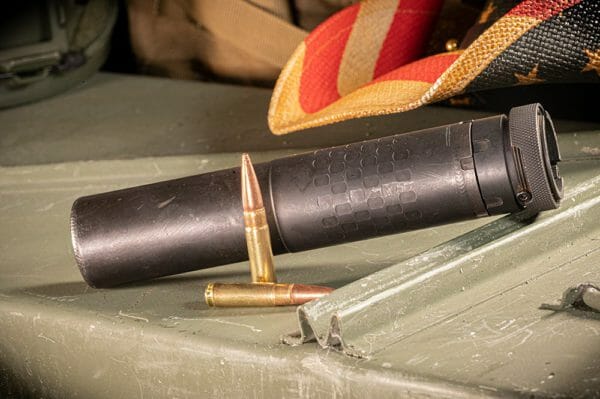
U.S.A. –-(AmmoLand.com)-– On February 24, 2022, Texas Attorney General Ken Paxton filed a suit against Marvin Richardson, acting head of the ATF, challenging the power of the federal government to regulate personally made silencers used for home defense in Texas, which remain in Texas.
The lawsuit follows the predictions made in a previous article on the subject by this correspondent. Here is the press release from Attorney General Paxton: From texasattorneygeneral.gov:
Attorney General Ken Paxton filed a lawsuit against the Bureau of Alcohol, Tobacco, Firearms, and Explosives seeking to stop the enforcement of federal regulations regarding firearm suppressors made in Texas. Texas House Bill 957, passed in 2021, expressly exempts from federal regulation firearm suppressors that are made in, and remain in Texas.
Federal law regulates firearm suppressors, making it illegal to own a firearm suppressor for personal use without paying a tax. It is also a federal offense to possess, manufacture, transport, repair, or sell a firearm silencer unless a person complies with federal guidelines.
“Our Second Amendment right must be protected and I will continue to protect Texans from federal overreach interfering with that inalienable right,” Attorney General Paxton said. “The federal government cannot simply override the Constitution. I will not allow them to tarnish the freedom and values Americans hold dear.”
This federal law violates the Second Amendment by taxing and regulating firearm suppressors made and used in Texas. No other constitutional right is subject to payment of a federal tax before an American can exercise that right.
The brief filed by AG Paxton is clear, the arguments are strong. The NFA restrictions on Silencers are attacked on the grounds of taxation of a Constitutional right (Second Amendment), inappropriate use of the commerce clause, and as a law that has no public safety justification.

1. Federal law has heavily taxed and regulated firearm suppressors since 1934. Since 1968, it has been illegal to make a firearm suppressor for personal use without first paying a $200 tax, marking the suppressor with a serial number, getting the approval of the federal government, and registering the firearm suppressor.
2. Heavy federal taxation and regulation of firearm suppressors made in Texas for personal use in Texas does not survive Heller’s recognition that the right to keep and bear arms is an individual, fundamental right. “[T]he enshrinement of constitutional rights necessarily takes certain policy choices off the table.” District of Columbia v. Heller, 554 U.S. 570, 636 (2008).
3. There has never been a public-safety justification for the taxation and regulation of firearm suppressors.
4. Moreover, federal regulation of firearm suppressors made in Texas for personal use in Texas cannot be justified as regulations of interstate commerce, or as laws necessary and proper for the carrying into execution such regulations of interstate commerce.
AG Ken Paxton is following his obligation under the law as required by Texas law passed in 2021, as HB 957. The bill became effective in September of 2021. AG Paxton has been especially busy this year, filing numerous lawsuits against the Biden administration for their illegal ignoring of federal immigration law. He has been winning those lawsuits.
Paxton has been fighting and winning. He has a reasonable chance of winning this lawsuit, which he was required to file, by law. He has wisely chosen plaintiffs who wish to make suppressors for their own private use for self-defense in their own homes in Texas. Ken Paxton has shown himself to be a savvy fighter for the Second Amendment.
This correspondent will be following this lawsuit closely.
About Dean Weingarten:
Dean Weingarten has been a peace officer, a military officer, was on the University of Wisconsin Pistol Team for four years, and was first certified to teach firearms safety in 1973. He taught the Arizona concealed carry course for fifteen years until the goal of Constitutional Carry was attained. He has degrees in meteorology and mining engineering, and retired from the Department of Defense after a 30 year career in Army Research, Development, Testing, and Evaluation.

